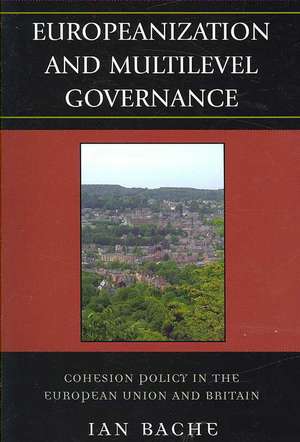Europeanization and Multilevel Governance: Governance in Europe Series
Autor Ian Bacheen Limba Engleză Paperback – 23 oct 2007
Preț: 476.02 lei
Nou
Puncte Express: 714
Preț estimativ în valută:
91.12€ • 99.00$ • 76.59£
91.12€ • 99.00$ • 76.59£
Carte tipărită la comandă
Livrare economică 21 aprilie-05 mai
Preluare comenzi: 021 569.72.76
Specificații
ISBN-13: 9780742541337
ISBN-10: 0742541339
Pagini: 193
Dimensiuni: 164 x 226 x 15 mm
Greutate: 0.31 kg
Editura: Rowman & Littlefield
Seria Governance in Europe Series
ISBN-10: 0742541339
Pagini: 193
Dimensiuni: 164 x 226 x 15 mm
Greutate: 0.31 kg
Editura: Rowman & Littlefield
Seria Governance in Europe Series
Descriere
Traces the relationship between Europeanization and multi-level governance. This study illustrates how the EU has affected the vertical and horizontal dimensions of domestic policymaking. It focuses especially on Britain, comparing its experiences to that of ten other member states.




































